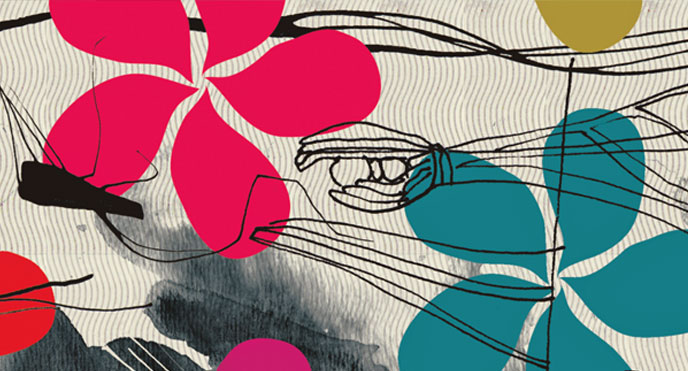Jorge Luis Borges
I’m choosing it because the Golem is a generally fascinating myth, but Borges’s recurring thematic obsession with dreaming things into reality elevates it to a new level.
—Bobby Wicks
The Golem
If, as the Greek maintains in the Cratylus,
a name is the archetype of a thing,
the rose is in the letters that spell rose
and the Nile entire resounds in its name’s ring.
So, composed of consonants and vowels,
there must exist one awe-inspiring word
that God inheres in—that, when spoken, holds
Almightiness in syllables unslurred.
Adam knew it in the Garden, so did the stars.
The rusty work of sin, so the cabbalists say,
obliterated it completely;
no generation has found it to this day.
The cunning and naïveté of men
are limitless. We know there came a time
when God’s people, searching for the Name,
toiled in the ghetto, matching rhyme to rhyme.
One memory stands out, unlike the rest—
dim shapes always fading from time’s dim log.
Still fresh and green the memory persists
of Judah León, a rabbi once in Prague.
Thirsty to know things known only to God,
Judah León shuffled letters endlessly,
trying them out in subtle combinations
till at last he uttered the Name that is the Key,
the Gate, the Echo, the Landlord, and the Mansion,
over a dummy which, with fingers wanting grace,
he fashioned, thinking to teach it the arcane
of Words and Letters and of Time and Space.
The simulacrum lifted its drowsy lids
and, much bewildered, took color and shape
in a floating world of sounds. Following this,
it hesitantly took a timid step.
Little by little it found itself, like us,
caught in the reverberating weft
of After, Before, Yesterday, Meanwhile, Now,
You, Me, Those, the Others, Right and Left.
That cabbalist who played at being God
gave his spacey offspring the nickname Golem.
(In a learned passage of his volume,
these truths have been conveyed to us by Scholem.)
To it the rabbi would explain the universe—
“This is my foot; this yours; this is a clog”—
year in, year out, until the spiteful thing
rewarded him by sweeping the synagogue.
Perhaps the Sacred Name had been misspelled
or in its uttering been jumbled or too weak.
The potent sorcery never took effect:
man’s apprentice never learned to speak.
Its eyes, less human than doglike in their look,
and even less a dog’s than eyes of a thing,
would follow every move the rabbi made
about a confinement always gloomy and dim.
Something coarse and abnormal was in the Golem,
for the rabbi’s cat, as soon as it moved about,
would run off and hide. (There’s no cat in Scholem
but across the gulf of time I make one out.)
Lifting up to its God its filial hands,
it aped its master’s devotions—even the least—
or, with a stupid smile, would bend far over
in concave salaams the way men do in the East.
The rabbi watched it fondly and not a little
alarmed as he wondered: “How could I bring
such a sorry creature into this world
and give up my leisure, surely the wisest thing?
What made me supplement the endless series
of symbols with one more? Why add in vain
to the knotty skein always unraveling
another cause and effect, with not one gain?”
In this hour of anguish and uncertain light,
upon his Golem his eyes would come to rest.
Who is to say what God must have been feeling,
Looking down and seeing His rabbi so distressed?
Jorge Luis Borges (1889-1986) was a poet, story writer and essayist.
Bobby Wicks is a senior publicist at FSG.
Read all of our Poetry Month coverage here

